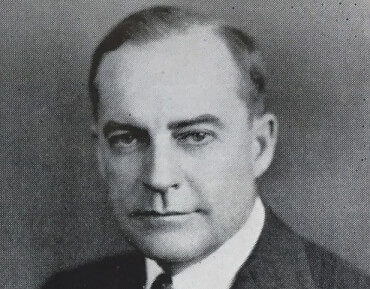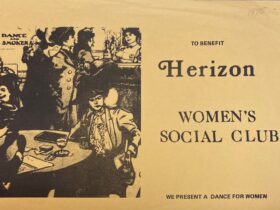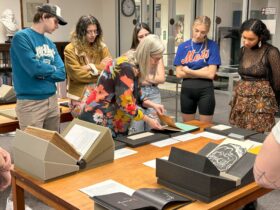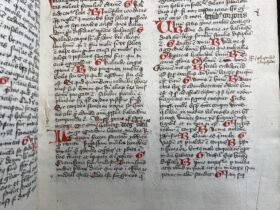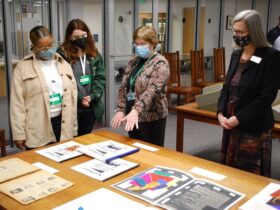The following was written by graduate student assistant, Madelynn Cullings, who worked in Special Collections since the spring of 2018. She had spent a good deal of her time processing the Wasson Family Papers until the university issued stay-at-home orders in mid-March due to the Covid-19 pandemic. Madelynn is a third-year graduate student pursuing a PhD in History at Binghamton University. She received her bachelors from the University of Pittsburgh in Art History and History in 2016, and her MA in History from Binghamton University in Spring 2019. She aspires to pursue a career that engages with her interests in Early Modern history and iconography.

Processing a raw, archival collection might seem like a daunting task — I certainly thought so when I was presented with several, cardboard boxes filled with hundreds of envelopes from the middle decades of the past century. Beginning with these countless letters, I was led to discover the figure of Thomas Campbell Wasson.
The Wasson Family Papers include the diaries, photographs, manuscripts, correspondence, publications and ephemera belonging to the Wasson family. The core of the collection draws its strength from materials related to Edmund Atwill Wasson, Mary DeVeny Wasson and their sons, Thomas Campbell Wasson and Richard Gordon Wasson. The bulk of materials date to the early and middle decades of the twentieth century, providing a unique perspective on historical events and social attitudes.
The dominant focus of the collection is centered around the career of Thomas Campbell Wasson. Wasson served as a member of the American Foreign Service between 1924 and 1948. His career was brought to an abrupt end shortly after his appointment to the Truce Commission in Jerusalem. Wasson was shot by a sniper’s bullet and fatally wounded after returning from a meeting of the French Consulate. The collection is a testament and memory to Thomas, which was largely curated and preserved by his devoted brother, Richard Gordon.
Although the voice of Thomas Wasson was largely silent during the initial stage of processing, materials later emerged which confirmed the image of Wasson envisioned through reading the letters of his loving family and companions. Wasson’s serious, yet kind-hearted manner was revealed through remarks from fellow Foreign Service personnel, who commented on Wasson’s bravery displayed during his service in Dakar, Senegal during the German occupation of France.
His career working for the American Foreign Service began following his travels throughout Europe during the first World War. His experiences are recorded in a diary which details the travels of Thomas and his brother Richard. His travels exposed him to diverse languages and cultures. His time spent studying French in this period would prove essential to the formation of his successful career. These experiences as a young adult were formative in his decision to embark on a career in the American Foreign Service.
Thomas Wasson’s long and distinguished career in the Foreign Service brought him into contact with diplomats and difficult situations. He was promoted through the ranks, beginning his career for the American Foreign Service as a clerk. He later served as Vice Consul in Melbourne and Adelaide, Australia. Throughout the 1930’s Wasson served as Vice Consul in Puerto Rico and Puerto Cortes, Honduras. He was subsequently promoted to Consul — serving in Florence, Italy and later Lagos, Nigeria. He served briefly at a post in Vigo, Spain in 1940 and was transferred to a post in Dakar, Senegal in the Fall of 1940. Wasson later returned to posts in Europe following an appointment in Washington, D.C., serving in Paris in 1946 and Athens the following year.
He was appointed to serve as a member of the three-man United Nations Truce Commission to Jerusalem in 1948. The tragic death of Thomas Wasson followed soon after his prestigious appointment. He died on May 23, 1948 after being fatally wounded by an unknown sniper’s bullet.
The gravity and tremendous weight of Thomas’ tragic death is reflected in the collection. A large portion of the Wasson Papers consists of condolences, newspaper articles published in the wake of Thomas’ death, and posthumous awards and commendations. Thomas Wasson was the recipient of various awards including the Medal of Freedom and the Congressional Medal of Honor.
Although not completely processed, please contact us at speccoll@binghamton.edu with queries about the collection.


